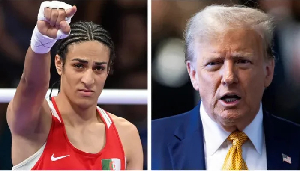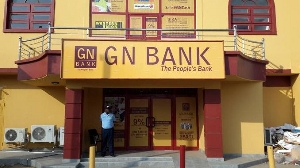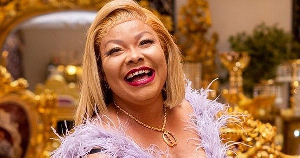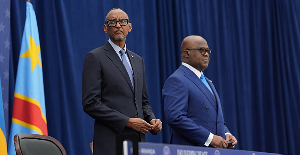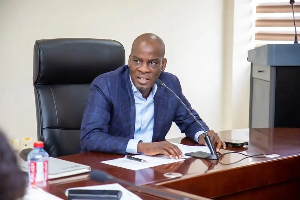Russia and Ghana have plannned to intensify their political consultations and deepen economic ties by taking advantage of all the necessary existing prerequisites for the benefit of both countries in the next few years, Dr. Leonid Fituni, Deputy Director of the Institute for African Studies under the Russian Academy of Sciences, said on Monday.
He called for urgent need for a more decisive and effective action to mitigate eventual challenges and ensure stronger and sustainable growth in economic interaction between Russia and Ghana.
Dr. Fituni was one of the key speakers at the symposium which was attended by the eminent group of diplomats, industry leaders, prominent international traders and analysts as well as Ghanaians resident in the Russian Federation. It was organized by the Ghana Embassy as part of the Independence Day celebration in Moscow.
Under the chairmanship of the Ambassador Extraordinary and Plenipotentiary of the Republic of Ghana to the Russian Federation, H.E. (Dr.) Kodzo Kpoku Alabo, the symposium focused on the historical evolution of Russia and Ghana relations and its future perspectives. Ghana Cocoa Board’s Chief Executive Dr. Stephen Kwabena Opuni also addressed the gathering on the role of the cocoa industry in Ghana.
Ghana was the first sub-Saharan African country to achieve independence, on 6 March 1957. And it was the first sub-Saharan African country, liberated from the colonial yoke. The Soviet Union supported liberation of the countries of the continent from colonial rule and provided practical assistance in establishing their statehood.
It was in those times that prerequisites were created for developing Russia-Ghana relations based on friendship, trust, mutual respect and taking account of each other's interests. During the previous decades, Soviet authorities managed to achieve important results in various fields.
In the structure of exports from Russia to Ghana traditionally dominate fertilizers, steel products, paper and cardboard; Russia imports cocoa beans and semi-finished products, manganese ore, tropical wood from Ghana, according to Professor Leonid Fituni.
Another important sector for possible broadening of cooperation is grain. The price of wheat made the highest gain in the last week in February in Ghana. The price of the commodity went up by 10 percent to close the week at 12 cedis 70 pesewas. The government undertakes serious steps to improve the situation. Cooperation with Russia may be one of the solutions here. Wheat exports from Russia are expected to set a new record this year.
Ghana covers domestic demand in wheat exclusively through imports. In the current season, (July to June) Ghana is expected to import about 600 thousand metric tons of wheat. Starting from the beginning of the season Russia shipped 40.2 thousand tons with total cost $ 6.845 mln. This makes about 8% of total requirements in wheat. What is important Russia is able to supply wheat relatively cheaper than its main competitors. This opens the way for looking into ways of expanding the deliveries.
Ghana has joined the ranks of what the Russian academician called “African Lions” and supported his argument that from 2006 until 2015, the growth rate in Ghana averaged 2.11 percent reaching an all time high of 8.10 percent in the first quarter of 2012 and a record low of -2.20 percent in the fourth quarter of 2008 at the peak of the recent global economic crisis, when many developed economies shrank by 4-6 percent.
Ghana has one of the highest GDP per capita in West Africa. The country possesses a diverse and rich resource base with gold, timber, cocoa, diamond, bauxite, and manganese being the most important source of foreign trade. In 2007, an oilfield which may contain up to 3 billion barrels of light oil was discovered. Yet, in spite of abundance of natural resources, a quarter of the population lives below the poverty line.
On education, the professor pointed out that “training of highly qualified specialists for various sectors of economy, as well as healthcare, is another track of our efforts.” It shows that cooperation in education is developing. Russian universities enrolled more than 120 students from Ghana with an annual quota of 60 grant scholarships. In addition, over 60 Ghanaian nationals enrolled at Russian universities on a commercial basis.
Russia and Ghana support the traditionally friendly bilateral relations, cooperate in the foreign policy arena, conduct regular consultations between the foreign ministries of the two countries, their positions on many international issues are close, according to Professor Fituni.
Business News of Tuesday, 15 March 2016
Source: Kester Kenn Klomegah, Moscow


